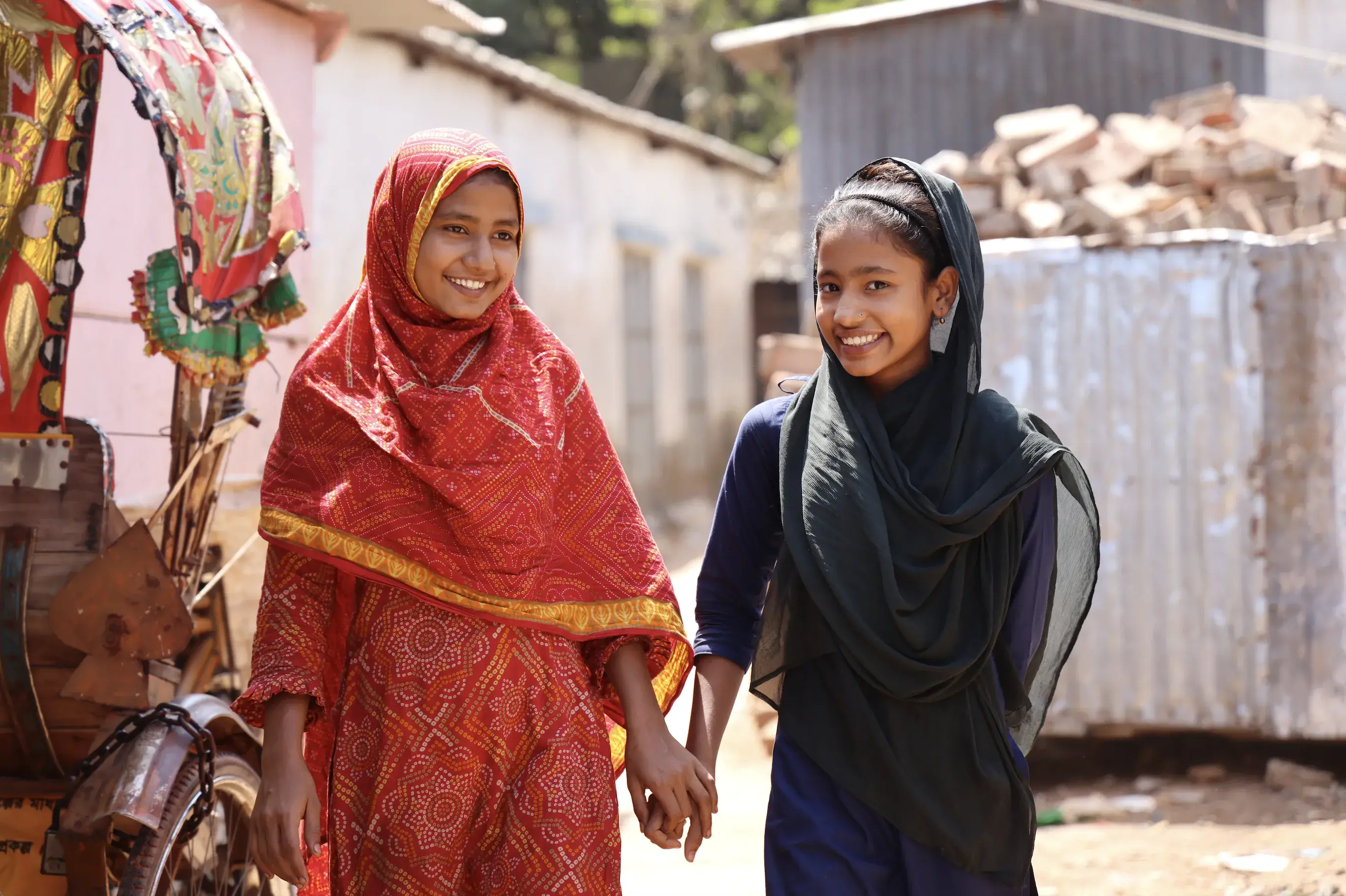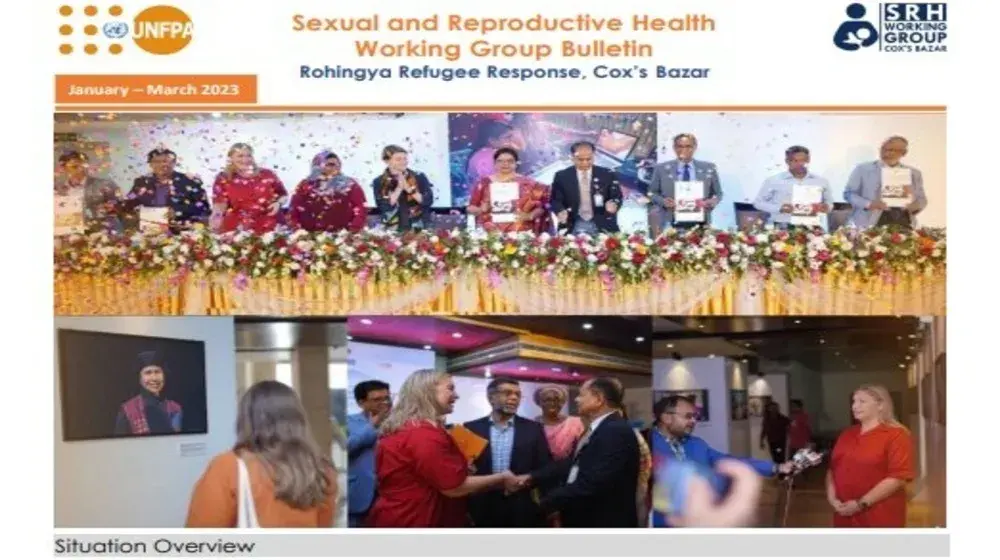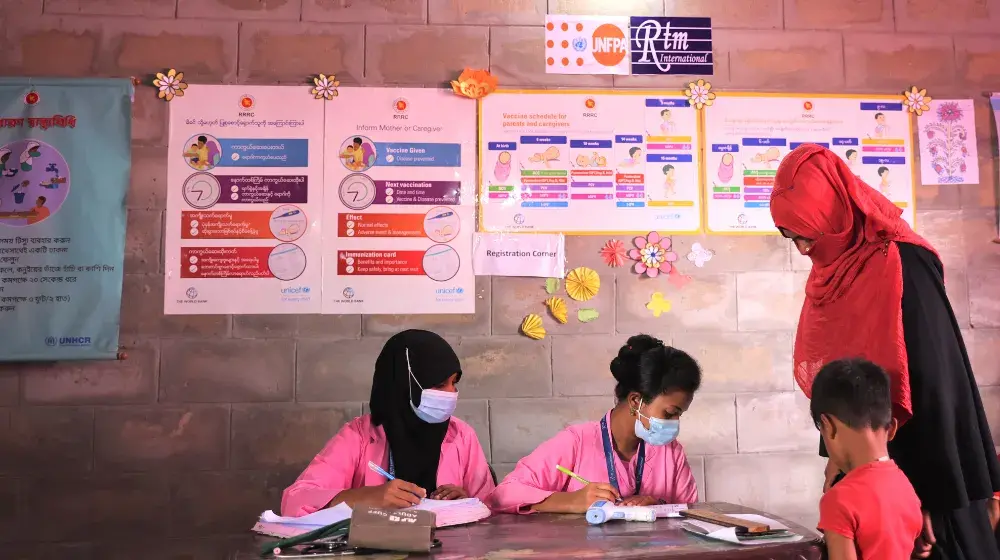Accessing knowledge on menstrual hygiene management continues to challenge women and girls in Bangladesh. Difficulty to purchase proper menstrual hygiene products, lack of adequate sanitary facilities in schools and other public spaces, as well as taboos and stigma associated with menstruation limit the ability of women and girls to fully participate in society. The problem is particularly difficult for the most vulnerable girls, and in the most left behind districts in Bangladesh, such as Cox’s Bazar.
Menstruation is a natural process and to be able to manage it is intrinsically related to human dignity. When safe water and sanitation, bathing facilities and safe and effective means of managing menstrual hygiene are difficult to access, menstruation cannot be managed with dignity. Therefore, to safeguard women and girls’ dignity and improve their menstrual hygiene in Cox’s Bazar district, the Korea International Cooperation Agency (KOICA) has decided to partner with the United Nations Population Fund (UNFPA). The partnership agreement with a value of USD 2,950,000 was signed this week on 26 August 2021 by KOICA Country Director in Bangladesh, Youngah Doh and UNFPA Representative in Bangladesh, Dr. Asa Torkelsson in a ceremony held in Dhaka.
Between 2021-2024, this partnership will support a variety of activities to improve knowledge of menstrual hygiene and to address the menstrual hygiene needs of women and girls in Cox’s Bazar. A total of 17,160 adolescent girls, boys, female, and male caregivers in 12 targeted communities are expected to directly benefit from the programme interventions.
Among the initiatives implemented by the project, adolescent girls and female caregivers in the targeted communities will be trained to produce reusable sanitary pads of their own. Menstrual Hygiene Management kits with essential items for maintaining personal hygiene during menstruation will also be distributed to vulnerable adolescent girls in the communities.
Furthermore, the project will raise awareness of menstrual health and hygiene related issues among men and boys by integrating sessions on menstruation in the sexual and reproductive health and rights, and gender-transformative life skills education programmes that are currently being carried out in the district. Training on menstrual health and hygiene and gender equality will also be provided to religious and female leaders to normalize public discourse on menstruation in the targeted communities, as well as to promote understanding of menstrual hygiene management as a social issue that needs to be addressed by wider society, and not just women or girls.
Speaking at the project signing ceremony, the Country Director of KOICA Bangladesh, Ms. Youngah Doh said: ‘Lack of adequate knowledge and facilities for menstrual health management (MHM) can pose a major obstacle to women and girls in maintaining their menstrual hygiene in a private, safe and dignified manner and systematically exclude them from participating in every-day activities, such as education, employment. We hope that supportive measures of the project regarding improved knowledge and access to MHM facilities will contribute to manage targeted women and girls’ menstruation hygienically, with confidence, with dignity and without stigma so that they can be empowered to fully and equally participate in society and live a healthy and productive life. This project is an ongoing commitment of KOICA to work with the Government of Bangladesh to help achieve the Sustainable Development Goals, especially SDG 3.7 which aims to ensure universal access to sexual and reproductive health-care services.’
“Menstruation is entirely natural, yet it has provided obstacles to women and girls reaching their full potential. Through this cooperation with KOICA and our other partners in Cox’s Bazar, we are excited to collaborate toward removing taboos and obstacles related to menstruation, and to provide and make menstrual hygiene management more sustainable, more accessible to women and girls in Bangladesh, thereby helping them to realize their aspirations,” Dr. Asa Torkelsson concluded in her remarks after signing the agreement.





